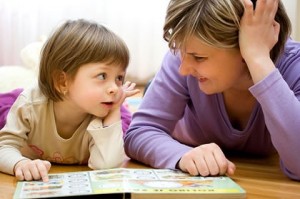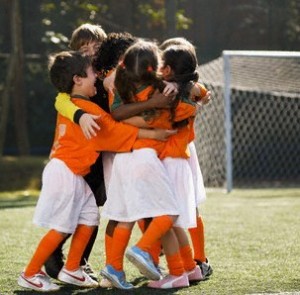Children are generally less able to regulate, or control, their emotional expression and behaviour than adults.
 Everyone experiences emotions – the feelings we have in response to situations and events. It is healthy to have a spectrum of emotions but the way our responses are expressed to others can cause difficulties, especially with children. This is due to brain development, is age related and also dependant on the levels of resilience the child has.
Everyone experiences emotions – the feelings we have in response to situations and events. It is healthy to have a spectrum of emotions but the way our responses are expressed to others can cause difficulties, especially with children. This is due to brain development, is age related and also dependant on the levels of resilience the child has.
However, supportive adults can help children express their emotions and associated behaviours in socially acceptable ways and improve a child’s resilience and ability to deal with things better now and in the future.
Some ideas include:
- Talking about emotions with your child in your everyday conversations. Using a variety of words to describe emotions encourages children to verbalise what they are feeling rather than act it out. Normalising ALL emotions is also important so your child feels ok about themselves, even when they are experiencing unpleasant emotions.
- Setting up realistic expectations and boundaries for behaviour. Children have very little control over what happens in their lives but being able to predict the outcomes of their behaviours helps them to make choices about how they express themselves.
- Guiding behaviour with attention and acknowledgement of efforts to behave appropriately and safely. Pay more attention to the behaviours you want and less to the behaviours you don’t want (considering safety needs).
- modelling the expression your own emotions with appropriate words and behaviours. Children learn from those around them so your ways of expressing and managing emotions, both pleasant and unpleasant, are ideal opportunities to show kids that emotions can be felt and expressed safely and appropriately.





 Encourage your child to pick at least five people then assign each person to a finger or thumb on one hand. This can help your child remember who those support people are, e.g. my teacher is my pointer finger.
Encourage your child to pick at least five people then assign each person to a finger or thumb on one hand. This can help your child remember who those support people are, e.g. my teacher is my pointer finger. Encourage your child to be a friend in order to make and keep friends. Being involved in social, sporting, cultural, school, or spiritual events and groups can also promote a child’s sense of belonging, self worth, and belief that they are surrounded by people who will support them when in need.
Encourage your child to be a friend in order to make and keep friends. Being involved in social, sporting, cultural, school, or spiritual events and groups can also promote a child’s sense of belonging, self worth, and belief that they are surrounded by people who will support them when in need.